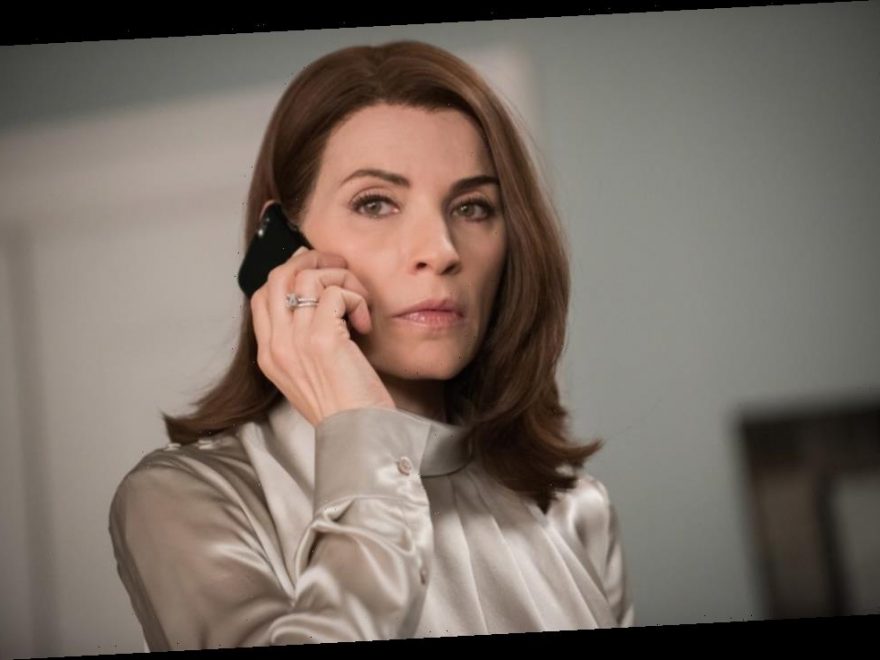The Good Wife is a political drama that aired on television from 2009 until 2016. The show was full of heartbreak, drama, juicy scandals, and bitter political rivalries.
Still, the biggest beef of all might have been one that took place behind the scenes. Reportedly, the series lead Julianna Margulies and another talented performer in The Good Wife, Archie Panjabi, were embroiled in a feud that lasted years — and it could have all started with a major honor that Panjabi received in 2010.
What is ‘The Good Wife’ about?
The Good Wife premiered in 2009 and told the story of a state attorney’s wife (Margulies) who returns to her career as a litigator after her husband, played by Chris Noth, is embroiled in a scandal. Although Alicia Florrick struggles initially to find her footing in the corporate world after having spent over a decade as a stay-at-home mom, she gathers her bearings and soon enters a veritable whirlwind of drama and intrigue.
Julianna Margulies was the star of ‘The Good Wife’
As Alicia Florrick, Margulies really had the chance to shine. Margulies, who began acting in the early nineties, hit her stride with a starring role in the medical drama ER, and by the time she was cast as the lead in The Good Wife, she was a popular Hollywood star with a large fan following.
Portraying the dynamic, determined Alicia, Margulies had to run the gamut of emotions in each episode, perfectly inhabiting the role of a woman who is wronged and is forced to step up to bat in a big way. Margulies wasn’t the only actress to make a splash in The Good Wife.
Archie Panjabi, a talented English actress, portrayed the character of Kalinda Sharma, an in-house investigator who has a tumultuous relationship with Alicia, compounded by the fact that Alicia finds out about a one-night stand that Kalinda had with Peter in the past. As it turns out, the drama wasn’t just between Alicia and Kalinda. In fact, Margulies and Sharma reportedly had major issues.
Julianna Margulies and Archie Panjabi were rumored to have a feud
The feud between Julianna Margulies and Archie Panjabi is a legend in Hollywood. Even though the actors themselves have indirectly denied the rumors, the idea of a feud has persisted over the years.
“Who says that? It’s totally gossip,” Margulies said during an interview at the New Yorker Festival, reported Vulture. “I heard that question had been asked to Robert King. There’s no story there, sorry. … I actually had heard [that rumor], and I feel that it has been talked about and answered.”
Margulies implied in the aforementioned interview that Panjabi wasn’t available to film due to her next project — a claim that Panjabi took to Twitter to debunk.
It seems to be compounded by the fact that as The Good Wife continued to air new episodes, the two actresses appeared in scenes together rarely. By the end of the show’s run in 2016, Panjabi was no longer around.
Was Archie Panjabi’s Emmy win the root cause of her feud with Julianna Margulies?
Panjabi never directly explained the disconnect, and it is impossible to diagnose how and why things went so wrong between the two stars. Still, some reports claim the source of the drama between the two could have started with Panjabi’s Best Supporting Actress Emmy win in 2010. Panjabi won the award over Julianna Margulies, who was nominated in the Outstanding Lead Actress in a Drama Series category.
It is certainly possible that Margulies could have been bitter over Panjabi’s win — however, Margulies had her time to shine, and went on to score two Emmy Awards for her work in the show, one in 2011 and another in 2014.
Panjabi ended up leaving The Good Wife at the end of the sixth season, which was a loss for the show. Fans really liked Alicia and Kalinda’s friendship, and it would have been a powerful moment in TV history to watch their friendship grow, evolve and thrive on screen.
What’s more, Panjabi’s success in the role is a huge step for South Asian representation and women of color. Her character was not defined by her heritage or ethnic background, or riddled with stereotypes.
Source: Read Full Article


